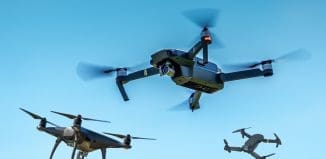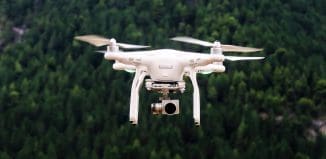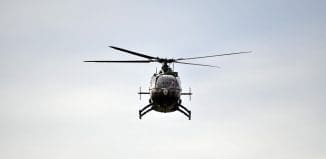The Civilian UAV Market is on the Rise
This post is also available in:  עברית (Hebrew)
עברית (Hebrew)
Venture capitalists like Tim Draper are placing their bets on the commercial applications of unmanned aircraft systems (UAS). Draper, an early investor in Hotmail, Skype and Baidu, is now backing DroneDeploy, a start-up that is building software to direct unmanned aircraft on land mapping and the surveillance of agricultural fields.

“UAS hold the promise of companies anticipating our every need and delivering without human involvement,” Draper, 55, wrote in an e-mail. “Everything from pizza delivery to personal shopping can be handled by UAS.”
According to the Washington Post venture investors in the United States poured $40.9 million into UAS-related start-ups in the first nine months of this year, more than double the amount for all of 2012, according to data provided to Bloomberg News by PricewaterhouseCoopers and the National Venture Capital Association. UAS are moving from the military, where they’ve been used to spy on and kill suspected terrorists, to a range of civilian activities.
Congress has directed the Federal Aviation Administration to develop a plan to integrate UAS into U.S. airspace by 2015 and to move faster on standards for UAS weighing less than 55 pounds.
It’s not just start-ups that are anticipating the changes. ConocoPhillips says that UAS could be used to monitor ice floes and marine mammals in the Arctic. Entrants could also include established UAS makers AeroVironment, Boeing’s Insitu unit and Israel Aerospace Industries in Tel Aviv, according to Bloomberg Government.
iHLS – Israel Homeland Security
Sales of civilian unmanned aircraft systems, or UAS, will reach $8.2 billion within the decade, up from nothing today, according to Phil Finnegan, Director of Corporate Analysis at researcher Teal Group, which tracks aerospace and defense. “There’s going to be a lot of growth in this market,” Finnegan said.
While the capital invested in UAS-related start-ups has surged, it’s still concentrated in just a few companies. Three start-ups account for all of the money raised in the first nine months of this year, compared with five in all of 2012.
Airware, a start-up in Newport Beach, Calif., raised $13.3 million earlier this year from investors including Andreessen Horowitz, Google Ventures and First Round Capital to develop customizable autopilots for UAS that cost about $4,500 to $7,500, according to the company’s Web site.
The business of UAS still carries plenty of risks. UAS will have to occupy parts of the airspace not used by airplanes, and investors don’t yet know what the rules will be. Concerns over privacy are most notable given the history of UAS as tools used by the government and military.
While DroneDeploy is building software and Airware is developing systems, some start-ups are focusing on services. Matternet, funded by Andreessen Horowitz, aims to use UAS to deliver items such as mail and medical supplies. Bloomberg LP, the parent of Bloomberg News, is an investor in Andreessen Horowitz.
Firefighters and law enforcement officials are likely to be some of the early beneficiaries of the drop in costs, said Kent Goldman, a partner at First Round Capital in San Francisco. “I see a bright future for non-military applications,” he said.
A Matternet test in Haiti can be seen in the video below.






























